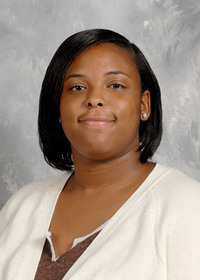Information Possibly Outdated
The information presented on this page was originally released on August 5, 2004. It may not be outdated, but please search our site for more current information. If you plan to quote or reference this information in a publication, please check with the Extension specialist or author before proceeding.
Youth encouraged to study medicine
MISSISSIPPI STATE -- An Extension program trying to identify future medical leaders in Mississippi is succeeding at its goal.
Rural Medical Scholars is a five-week summer program offered by the Mississippi State University Extension Service in cooperation with the state's 15 community and junior colleges through the Mississippi Rural Health Corps. It recruits students entering their senior year of high school, offering them a brief college experience and a taste of life as a medical doctor in Mississippi. To date, 144 students have completed the program.
Last year was the first year RMS graduates could qualify for admittance to medical schools. Of the 56 eligible to move on, seven have been accepted into or have already started medical school. Many others are going into nursing, and some are heading towards physical or occupational therapy, medical research and veterinary medicine.
"This year, three of the 100 slots at the University Medical Center in Jackson were competitively filled by graduates of our program," said Bonnie Carew, Rural Medical Scholars coordinator with MSU. "The fact that this small program produced three of the incoming medical class students means we truly are identifying the future medical leaders of this state."
Sara Sullivan is a senior at MSU majoring in microbiology. The 2000 RMS graduate spent this summer and last as a counselor for the program. She plans to attend nursing school upon graduation from MSU and become a nurse practitioner.
"Previously, I wanted to go to work in a bigger community, but recently I started considering staying in Mississippi. That is directly due to the Rural Medical Scholars program," Sullivan said. "I already knew I wanted to go into medicine because I enjoy helping people and being in a medical environment. Right now I feel like where I can be most helpful is here. I'll at least consider it as an option."
Lynne Cossman, a sociologist in MSU's Social Science Research Center, said a combination of factors has led many state doctors to retire early or leave the state, and many others may do the same.
"Mississippi residents may suffer from a lack of access to quality healthcare," Cossman said.
The state's medical environment poses several challenges to physicians, among them high rates of Medicaid use, malpractice lawsuits, a largely rural population and a high percentage of chronically ill patients, many of whom don't have insurance.
"Nationally, there are three doctors to every 1,000 residents, but Mississippi has two per thousand residents," Cossman said. "The doctors who do practice in the state are not evenly distributed, producing gaps in access to physician care. More than half of the physicians serve in four urban areas, leaving 51 of the state's 82 counties underserved."
The Rural Medical Scholars program began in 1998 as a way to attract academically talented Mississippi youth into medical careers with the goal of keeping them in-state to meet local healthcare needs. Participating youth are accepted into MSU and take college algebra and principles of zoology for seven hours of college credit. The summer is spent in class, shadowing area physicians as they work and hearing speakers on a variety of related topics.
The state's community colleges nominate students to be considered for the program.
Students in this year's RMS class praised the shadowing opportunities as valuable insight into the job of a physician, the demands they face and the relationships they form with patients.
"All the doctors seem very passionate about what they do," said Trey Lyons of Tupelo, a 2004 Scholar.
Mary Beth Eiland of Columbus echoed the thought, adding that even though each doctor has scores of patients, "each one expects the doctor to know all about them."
Taking pre-med classes as a high school student is not easy, but the youth said the experience forced them to learn good study habits and prioritize their time. Guest speakers and information presented helped give them a clear direction for their academic careers.
"We learned how to get into medical school," said Peter Huwe of Corinth, while Sanober Zikker of Horn Lake said "the program really cemented our goals and told us what medical school is all about."
Extension Service's efforts in delivering this program is beginning to pay dividends for the state. For more information about the Rural Medical Scholars program, call Bonnie Carew at (662) 325-1321 or visit http://www.rms.msucares.com.



